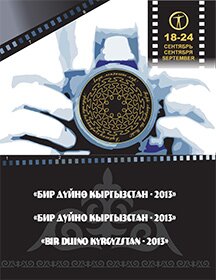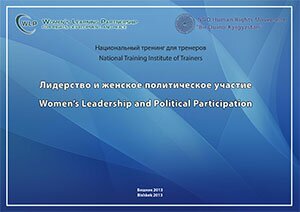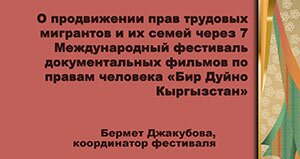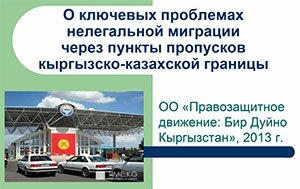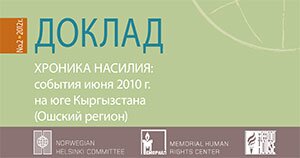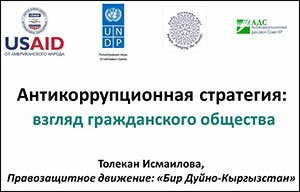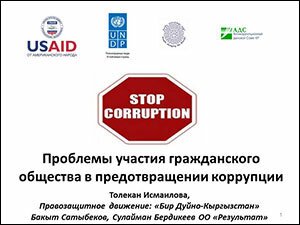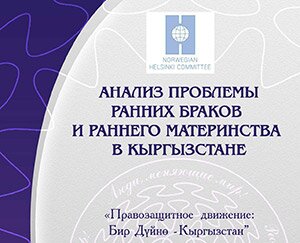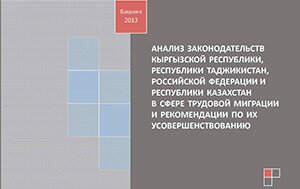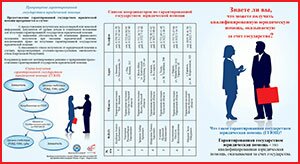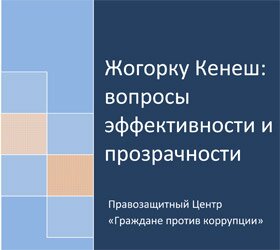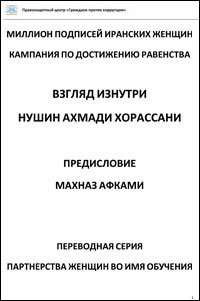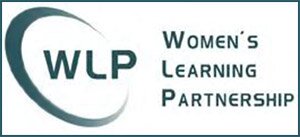The predominant view in our society is that women and politics don’t go together, though in recent years more and more women are moving towards independence and autonomy. Promotion of women into power is seen today as an instrument of stable, humane and sustainable development of society, since real equality between men and women changes state’s policy-making priorities. One of the most vivid examples of society’s need in women leaders was the presidency of the first woman in such a patriarchical and traditional region as Central Asia. In 2010 Kyrgyz citizens elected Roza Otunbayeva and empowered her to take the country out of crisis. Electing a woman as a head of state we believed in restoration of stability, peace and quiet.
Though women play an important functional role in society, they are still underrepresented in governance structures of the state. Why is it so? The reason is under-developed legislation, weak civil society and low political activity of women themselves, as well as low level of democratic development. However, the main factor inhibiting promotion of our women into politics and power is local patriarchal traditions and stereotypes.
How should gender equality be reached in the political sphere? Experience of other countries shows that gender equality is positively correlated with the development of social sector and economic growth. More specifically, countries having less than 25-30% female representation in parliament are badly managing protection of mother and child, children’s rights and social security. This, in turn, means that respect and provision of human rights in accordance with main democratic principles is not fully carried out. Therefore, it is not surprising that the struggle for real democracy includes one very important component – full gender equality, including equal representation in governments, parliaments and all institutions of the state that deal with social justice and social stability.
“Despite the fact that women in Kyrgyzstan play very important roles, today they are very modestly represented in the political system. What is the matter? The main reason for gender inequality is, in my opinion, defective legislation, whose reform is long overdue. Such reforms, however, would not lead to change of mindset. It is at trainings like this that we work with minds of not only women, but also men. Today promotion of women into power should be seen as democratic development. Recent events demonstrate that a women leader symbolizes stability. Today we have to encourage women to enter politics in evolutionary, and not revolutionary way,”- said Aida Salyanova, Prosecutor-General of Kyrgyzstan, during the seminar on women’s leadership and political participation held in Bishkek.
The training seminar was organized by Human Rights Center “Citizens Against Corruption” together with World Women’s Educational Coalition “For Equality, Development and Peace.” Participants included foreign representatives of this movement, youth activists from Kyrgyz universities, state officials, NGO representatives from the capital and regions, mass media and experts.
“For us the meeting was very important. Today’s event gathered not only talented representatives of women’s movement from abroad, but also university students and young leaders from regions of our republic. There are also civic journalists who play an important role in contemporary society. During the turbulent times for our country, Roza Otunbayeva became the first female head of state in Central Asia, while Aida Salyanova took responsibility for Prosecutor General’s Office and Gulnara Derbisheva became Deputy Minister for Social Development. Today more and more women take the responsibility of political initiative, responsibility for themselves and their lives. Our task is to share experience and guide young leaders in the right direction,” noted Director of Human rights Center “Citizens Against Corruption” Tolekan Ismailova.
Despite the fact that Kyrgyzstan has passed all the relevant gender equality legislation, the government does not have a clear policy on the issue. For example, the Decree on Measures to Improve Gender Policy” provides for at least 30% female membership in state organizations and local governance bodies, including the decision-making positions. According to the document, all bills are to pass gender analysis and all job vacancies in state and municipal bodies should provide for equal conditions and opportunities for both genders. Maybe the issue is apathy of women themselves?
“Kyrgyz State National University has ten thousand students and all of them are apathetic. That’s why we organized a cultural-educational club called “Kun Zhelesi,” where the youth can develop their talents. And I am confident that at the heart of the issue lies not gender inequality per se, but apathy and lack of awareness. Through our initiative we even hope to contribute to professional orientation of students – the club promotes talent and professional development. The main advantage of this training Is that it is based on foreign and local experience of raising awareness and mobilizing youth to take an active part in political decision-making for the future of Kyrgyzstan,”- said a youth leader Aaruke Konubayeva.
This is the point of view of youth. The youth of our republic today is not only actively promoting ideas of political participation in universities and youth organizations, but also is contributing to social and economic well-being of the country. And if they initiate the reform of mind mentioned previously and there would be no division of responsibilities into male and female ones, we can confidently say that gender equality will take hold in the country.
“I am very proud that in Kyrgyzstan women are holding high political posts. I regard it as a very big achievement for world women’s movement for equal rights. However, I would like to note that today we must discuss not only women’s leadership, but also youth leadership. Our task is to educate the youth to show initiative and responsibility. They have the energy and courage, while we have experience. Today’s event was possible thanks to a study plan which was designed based on leadership experience from many countries. I think the main principles of leadership development are networking and cooperation. In this sphere we have to continue our peaceful fight against corruption and struggle for a better life, equality and justice,”- said coach Asma Hanna Salem Hade from Jordan regarding aims and tasks of the seminar.
However, one should not overlook the multiple remaining problems, especially the fact that many positions today are occupied by men. But men are ready to compromise, thinks “Kovcheg” NGO head Mirlan Kydyrmyshev. “Today activist women should understand that political participation begins at home and in the villages. I wish there would be dialogue between genders, not confrontation. Men are ready to share not only power, but also responsibilities,” noted the expert.
Thus participants of the seminar not only got introduced to forming horizontal networks to effectively exchange information, tactics and experience of working with media and new information technology in the work of promoting women politicians into bodies of power, but also identified a number of obstacles to successful promotion of women into politics. Most importantly, they identified solutions and tasks to overcome those obstacles after brainstorming with coaches, politicians, foreign experts and local activists.
Political parties were found to be an effective tool for promoting political participation of women and for constructing gender-equality based democracy. However, to change intra-party gender policies and the mindset of party leaders it is necessary to raise awareness and educate them. This process should better start now, to organically include the development of gender equality into party-system development.
Participants also noted that both NGOs that work directly with the population and interact with local governance bodies, and local governance bodies are actively realizing their potential in the social sector. Thanks to social activeness of women, a number of gender issues were included into the main development program of the country “Comprehensive bases of development of Kyrgyz Republic.”
The issue, noted a participant from Kazakhstan, is not that a female wants to become a member of parliament, but that women in general are better problem-solvers in certain spheres, like child protection, protection of motherhood and social development, as well as migration. It is necessary to note that women and men should not compete but cooperate. Then there will be gender inequality in politics, and issues will be settled on the basis of professionalism and skills in administration and decision-making.

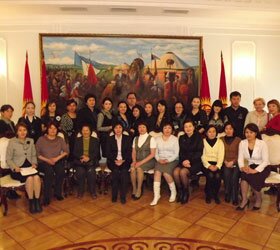





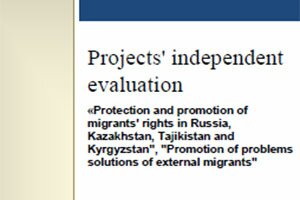
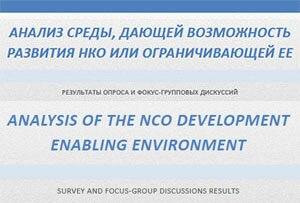

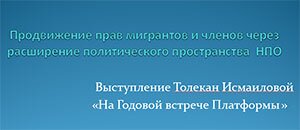
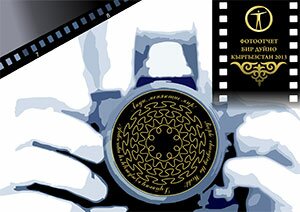
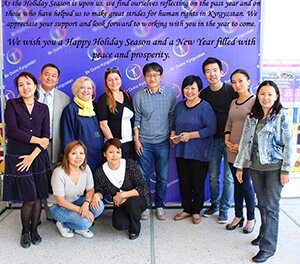
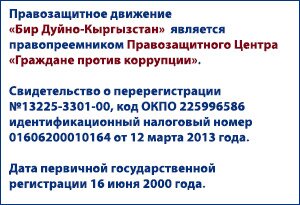

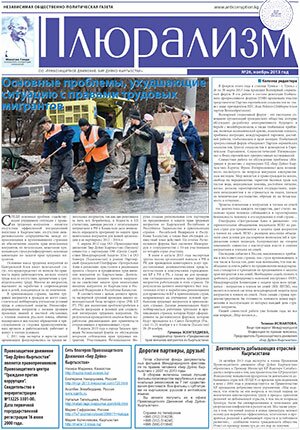
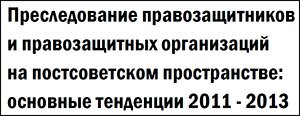
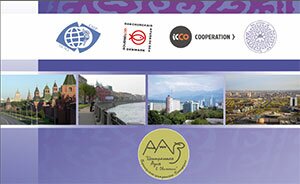 Отчет по результатам мониторинга услуг дипредставительств и консульств КР в России и Казахстане
Отчет по результатам мониторинга услуг дипредставительств и консульств КР в России и Казахстане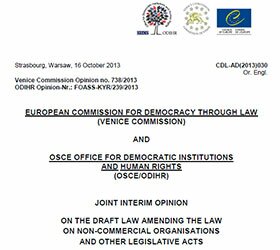 Joint Interim Opinion On The Draft Law Amending The Law On Non-commercial Organisations And Other Legislative Acts Of The Kyrgyz Republic
Joint Interim Opinion On The Draft Law Amending The Law On Non-commercial Organisations And Other Legislative Acts Of The Kyrgyz Republic